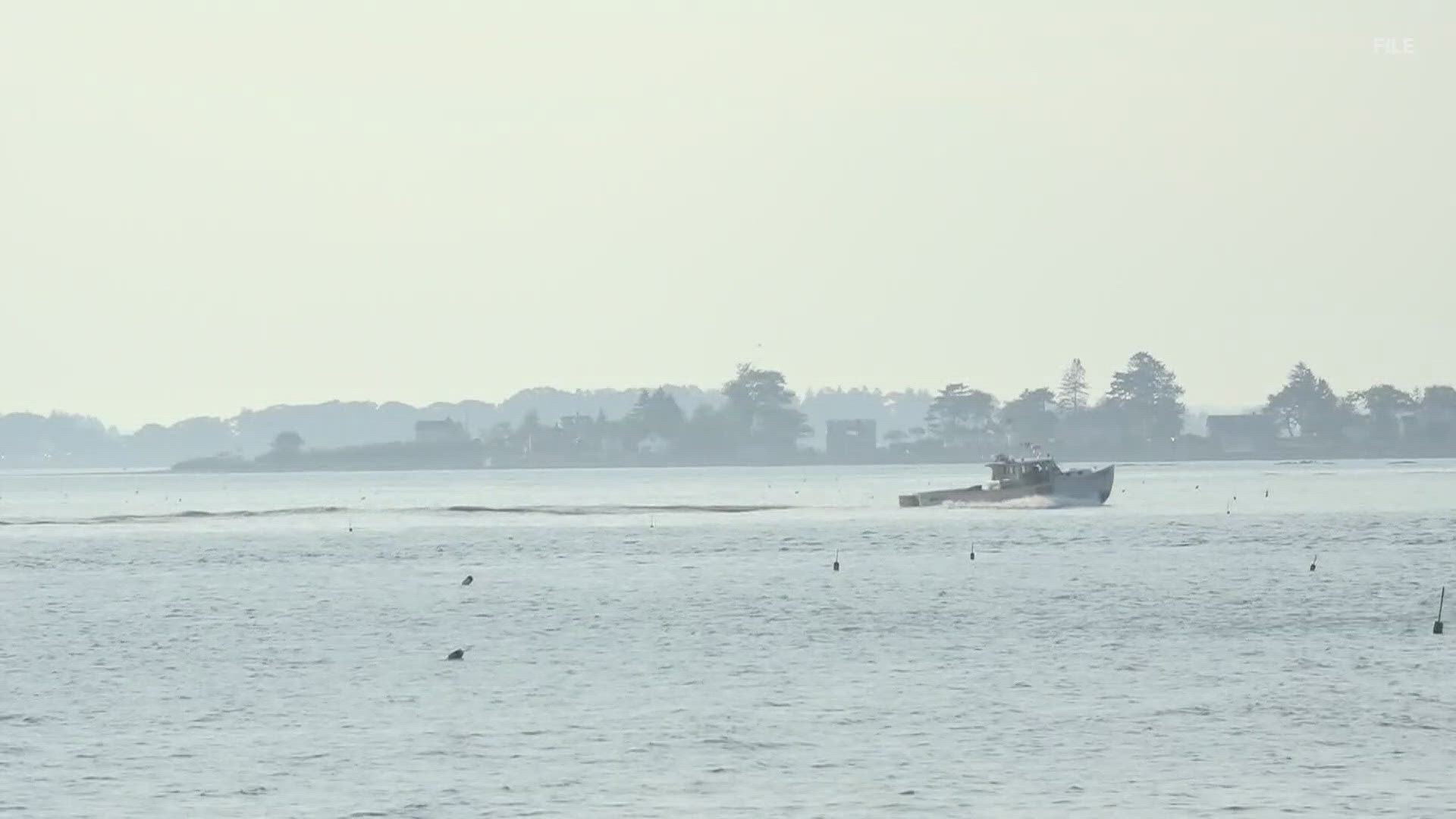ORONO, Maine — Scientists say the Gulf of Maine is now warming faster than almost anywhere else in the world. What does that mean for the state's billion-dollar fishing industry?
Researchers at the University of Maine are developing new tools to ensure the sustainability of Maine's commercial fisheries.
For years, scientists have been tracking how less cold water enters the Gulf of Maine while the hotter Gulf Stream is shifting north and adding warmer water to the region. This is impacting populations of different species, including Atlantic cod.
"The production of young cod has decreased with increasing warming, how the growth of cod has decreased with warming conditions," UMaine scientist Lisa Kerr said.
Kerr, an associate professor of fisheries sciences, leads a team of researchers developing new tools to help fisheries make management decisions more responsive to a changing climate.
"Informing how many fish they can catch, we want to ensure a future fishery and maintain our fisheries on the shore and in our communities," Kerr explained.
As part of the Northeast Climate Integrated Modeling Initiative, scientists capture data on how marine species adapt to a changing ocean. Researchers are focusing on Atlantic cod, bluefin tuna, black sea bass, and winter flounder, determining health benchmarks of fish stocks and integrating climate and ecosystem information into stock assessments. Graduate student Julia Barron focused on the impact of climate change on the winter flounder population in three stock ranges across the Gulf of Maine.
"Hopefully, we can manage the species better in the future as a result," Barron said.
Researchers received a 1.2 million dollar grant from the National Oceanic and Atmospheric Administration, or NOAA, earlier this year. The second funding phase will allow researchers to connect with fishery management officials who can use the data to guide fish harvesting and stock assessment.
"We can use them in all the species in the northeast, including pollock, haddock, and redfish. We can adapt these tools to other species," Jon Hare, director of the Northeast Fisheries Science Center for NOAA Fisheries, said.
Patrice McCarron, the acting COO of the Maine Lobstermen's Association (MLA), issued the following statement to NEWS CENTER Maine:
"Climate change presents a major challenge in managing commercial fisheries. Environmental conditions are changing, and marine species, such as lobsters, are adapting. Existing stock assessment and management tools can no longer capture what is happening accurately. The University of Maine's work to develop new tools that reflect how marine species adapt to changing ocean conditions is critical.
"The MLA is encouraged that UMaine is looking not only at the impacts of climate change on marine species but also the impacts on fishermen and communities. The success of Maine's coastal economy is inextricably linked to the success of Maine's lobster fishery. We must have the tools necessary to sustain both the lobster stock and the fishery."

